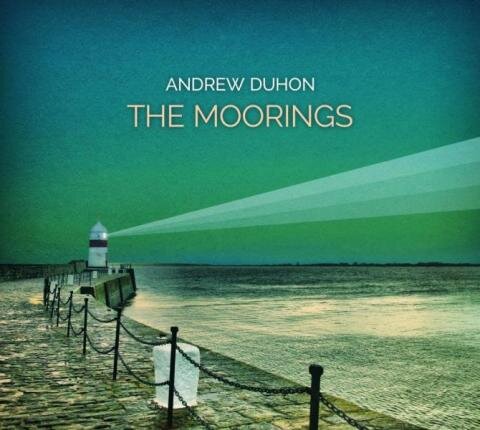New Honey Island, Anders, Martha Redbone & More

Reviews of new albums by Honey Island Swamp Band, Anders Osborne, Martha Redbone, Bonerama, Los Po-Boy-Citos and more before they play Jazz Fest this weekend.
Reviews of new CDs from artists performing this weekend at Jazz Fest.
[Updated]
Honey Island Swamp Band
Cane Sugar
(Louisiana Red Hot)
Tracing influences can be tricky business. For instance, are the Honey Island Swamp Band influenced by The Rolling Stones and The Band? It's hard to imagine that they aren't, but it's equally possible that the Honey Islanders listened to the same blues, R&B and country records as the Stones and The Band and ended up in similar places. On Cane Sugar, the question is intriguing, but it's also ultimately irrelevant. Many of the lyrics have a core familiarity in their sentiments and images ("Black and Blue," "Prodigal Son"), but they're executed so well that derivation questions get lost in the simple musical pleasure. "Miss What I Got" is an acoustic country rocker that steps with elegant ease into its chorus, and when that ends with an emotional turnaround, Aaron Wilkinson's mandolin invokes teardrops or rain as he plays a sweet descending run. "Johnny Come Home" is a New Orleans funk rock track with a playful spirit courtesy of Chris Mulé's (or is it guest John Mooney's) slide guitar, while "Pills" is a classic honky tonk tune with Trevor Brooks' jaunty saloon piano playing against Wilkinson's tear-in-my-beer lyric while Willie Nelson harmonica mainstay Mickey Raphael adds his signature touch.
The songs are built to work with the core lineup, but for Cane Sugar the band and producer John Porter bring in Mooney, Raphael, horns, strings and backing vocalists to put each song in its best light. The help never props up the songs, though. The band's songwriting is consistently smart and surprising, with musical hooks that work and lyrics that are in genre without being formulaic. When they bring a similar touch to songs that reflect moments from their own lives, Honey Island Swamp Band will be something special.
[Cane Sugar is only available in New Orleans until July, when it will get a national release.]
Honey Island Swamp Band play the Sheraton New Orleans Fais Do-Do Stage Sunday at 4:15 p.m.
Martha Redbone Roots Project
The Garden of Love: Songs of William Blake
(Blackfeet Productions)
William Blake never sounded this country. Native American artist Martha Redbone has adapted poems by the visionary British poet to American string band instrumentation, and like the Carolina Chocolate Drops, she create soulful, smart, vaguely spiritual music. If the album title didn't mention Blake, you could easily miss that the words were written in the 1700s. There's nothing in her arrangements on The Garden of Love that draws attention to the songs' origins as poems, and she chooses pieces that could be mistaken for a little-known Appalachian ballad. Redbone doesn't cheat on the language, keeping the verb "doth" in "On Another's Sorrow," but the song still sounds like a contemporary, banjo-driven plea for compassion.
Martha Redbone Roots Project plays the Sheraton New Orleans Fais Do-Do Stage Sunday at 1:30 p.m.

Anders Osborne
Three Free Amigos
(Alligator)
The world ain't bigger than a mile at a time" is a welcome sentiment on an Anders Osborne recording, particularly after the harrowing journey he documented on American Patchwork and Black Eye Galaxy. The drama is dialed down on this EP, but that hasn't affected any of his musical inspiration. He brings the same imagination and creativity to songs of friendship and acceptance that he brought to songs of addiction and devastation, so the title song reflects the warmth implied by the phrase "three free amigos," while "Jealous Love" has a sorting-it-out quality expressed by an understated acoustic guitar take on the Bo Diddley beat. Three Free Amigos ends with "We Move On," which seems to signal that it's time leave the way station that the EP represents. It's a very pleasant place, but we're ready to see what comes next.
Anders Osborne plays the Gentilly Stage Saturday at 2:05 p.m.

Ben Harper and Charlie Musselwhite
Get Up!
(Stax/Concord)
Ben Harper's music has been strongly influenced by the blues, but he's a rock guy, and Get Up! is strongest when he and harmonica player Charlie Musselwhite take the material to his turf than when he goes to Musselwhite's. When the songs step away from blues tropes and assert individual musical identity, they get stronger, even when it's something as simple as the odd, clapped rhythm that nudges "We Can't End This Way" along. Equally strong is "You Found Another Lover (I Lost Another Friend)," where the real subject is Harper's vocal, and the words are just the thought he's singing. Oddly, the harder, more obviously rocking songs are more generic. They're heavy, but they live entirely in the world of the blues, where Harper seems a little out of his depth. The title track reaches for folk profundity when he sings, "Don't tell me I can't break the law / because the law has broken me," but the sentiment sounds secondhand, particularly when paired with a "Voodoo Chile"-like crunch. Unfortunately, Get Up! is front-loaded with this sort of song, which makes it the rare album that gets better about half-way through.
Ben Harper and Charlie Musselwhite play the Gentilly Stage Saturday at 5:25 p.m.

Los Po-Boy-Citos
Hasta
(Independent)
When I reviewed Los Po-Boy-Citos' debut CD, New Orleans Latin Soul, I looked forward to the day when they could dispense with the boogaloo'ed versions of New Orleans R&B. I liked the album, but I was curious about how long it would be before they could think and write compellingly in the genre. On Hasta, their third album, they're there. There are no R&B covers, and the band wrote the majority of the material. It's no surprise that uptempo tunes such as "Estelita's Boogaloo" and "Oye Mamacita" work well, but it's a mark of the band's confidence and it features the breezy, mid-tempo "Mary Wants to Boogaloo" as the second track on the album. The album closes with the title cut, co-written with Tom McDermott, whose piano also helps give the song an unexpected flavor. The band members come to the music as fans and not by background, but it's a measure of their growth that they're also starting to reach beyond their musical starting place.
Los Po-Boy-Citos play the Jazz & Heritage Stage Friday at 2:55 p.m.

Bonerama
Shake It Baby
(Independent)
Shake it Baby reminds me of why I really enjoy Bonerama live but I don't return to their albums. The sonic power they generate is impressive, and they're musically spot-on. They're distinctively funky, and their arrangements can make a song as familiar as "Indian Red" startling. The crosstalk between the trombones at the start is more skittery than you might expect, and Bert Cotton playing slide guitar allows him to join the conversation. Sections connect Bonerama and the streets, while others appropriate the song in ways that suit them best. That shifting relationship is smart and fun, and I wish more of Shake It Baby flew at that high a level. So far though, Mark Mullins and Craig Klein's songwriting isn't on par with their other talents. The nuts and bolts of converting commonplace thoughts to compelling lyrical constructions continues to challenge them. It's only an issue on recordings, where the lyrics are too front and center to get around, but it means I'll have to keep waiting for the definitive recorded Bonerama statement.
Bonerama plays the Gentilly Stage Friday at 2:35 p.m.

Andrew Duhon
The Moorings
(Independent)
On 2009's Songs I Wrote Before I Knew You, singer/songwriter Andrew Duhon was a bit mannered, an old soul before his time. His new The Moorings presents a more natural presence behind the music. Yes, there are still a number of folk blues that feel meaningful and heartfelt when sung in his warm, quietly soulful voice, but there are also songs that rock. For me, the winner on the album is "Tandem Bike," in which Duhon tries to entice a woman to go for a ride around Uptown on a tandem bike with, buying records and wine. Folk blues often sound rural, either by association or the details (or lack thereof) in the lyrics, so it's great to hear Duhon make the style speak to the city life. Hopefully, that's a direction he'll explore more in the future.
Andrew Duhon plays the Lagniappe Stage Sunday at 5:25 p.m.

Jason Marsalis
In a World of Mallets
(Basin Street)
In 2010, Jason Marsalis kicked a jazz anthill when he half-jokingly riffed on video about "Jazz Nerds International" - jazz musicians who
did not take sufficient time to investigate jazz before 1990, nor did they have a belief in that music. I then realized that these musicians did not have many opportunities to play outside of the classroom situation. Therefore, playing jazz for an audience was not part of their musical experience. As I traveled the country, I began seeing this as a trend. Jazz students would play an abundance of notes in an abstract manner without an understanding of basic melodic content.
On In a World of Mallets, the Jason Marsalis Vibes Quartet returns to this theme with the "Blues Can Be Abstract, Too." His tongue-in-cheek defense is defined by a dense melodic pattern played on his vibes as the band stops and start, threatening to swing, then abruptly cutting that as if Simon Says "Halt." The blues structure isn't immediately obvious - his point, I assume - but when the track opens up to his fleet solo, he's racing neck and neck with bassist Will Goble while drummer Dave Potter swings hard. That gives way to a more measured solo by pianist Austin Johnson before they return to opening arrangement. Abstract? Maybe, but it succeeds in being compelling as a piece of music and as reminder of how playful Marsalis can be while keeping a straight face.
Similarly, "Characters," sounds like a slice of early '60s, cinematic jazz - an exercise in melancholy that could have ended up on a '90s lounge compilation. Marsalis' pillowy vibes trace a haunting theme, perhaps for a woman in love who'll flirt with madness throughout the film until it costs her the one she loves. Marsalis is playing with the sonics of the vibes and their associations. When he lays out for Goble's solo, the track becomes less referential and the mood less theatrical. When Marsalis returns, he picks up the genuine drama Goble established and riffs on it.
In a World of Mallets isn't always that conceptual. "Blues for the 29%ers" is straightfoward, as is the version of Bobby Hutcherson's "Ill Bill," but the album is broken up by a series of solo pieces by Marsalis, created by overdubbing layers of percussion parts. Each is brief, with the clockwork-like "My Joy" the longest at 2:07, and his pensive version of Hermeto Pascoal's "Nenhum Talvez" barely takes up a 1:36 of your time. Each is a remarkable miniature - precise, almost crystalline, and very satisfying in its economy.
These tracks keep the metallic, pillowy nature of the vibes from becoming oppressive, but its hard to imagine listening to more of the solo compositions without descending into a world of micro-obsession. The juxtaposition isn't as jarring as it might sound, though. Marsalis is too conscious of sound to let them clash. His vibes move from the lead instrument to a musical substrata over which more immediate sounds and structures are built, but they remain a sonic through-line that holds the album together.
In a World of Mallets argues with good humor and talent for a blues-based contemporary jazz, but more than that, it's a reminder of how deceptively smart and witty Jason Marsalis' music is.
[Note: This review first ran on My Spilt Milk on February 21.]
Jason Marsalis plays the Zatarain's/WWOZ Jazz Tent Saturday at 1:20 p.m.
Updated at 5:01 p.m.
In the Honey Island Swamp Band review, at one point the CD was misidentified as Cane Island. That titling error has been corrected.






